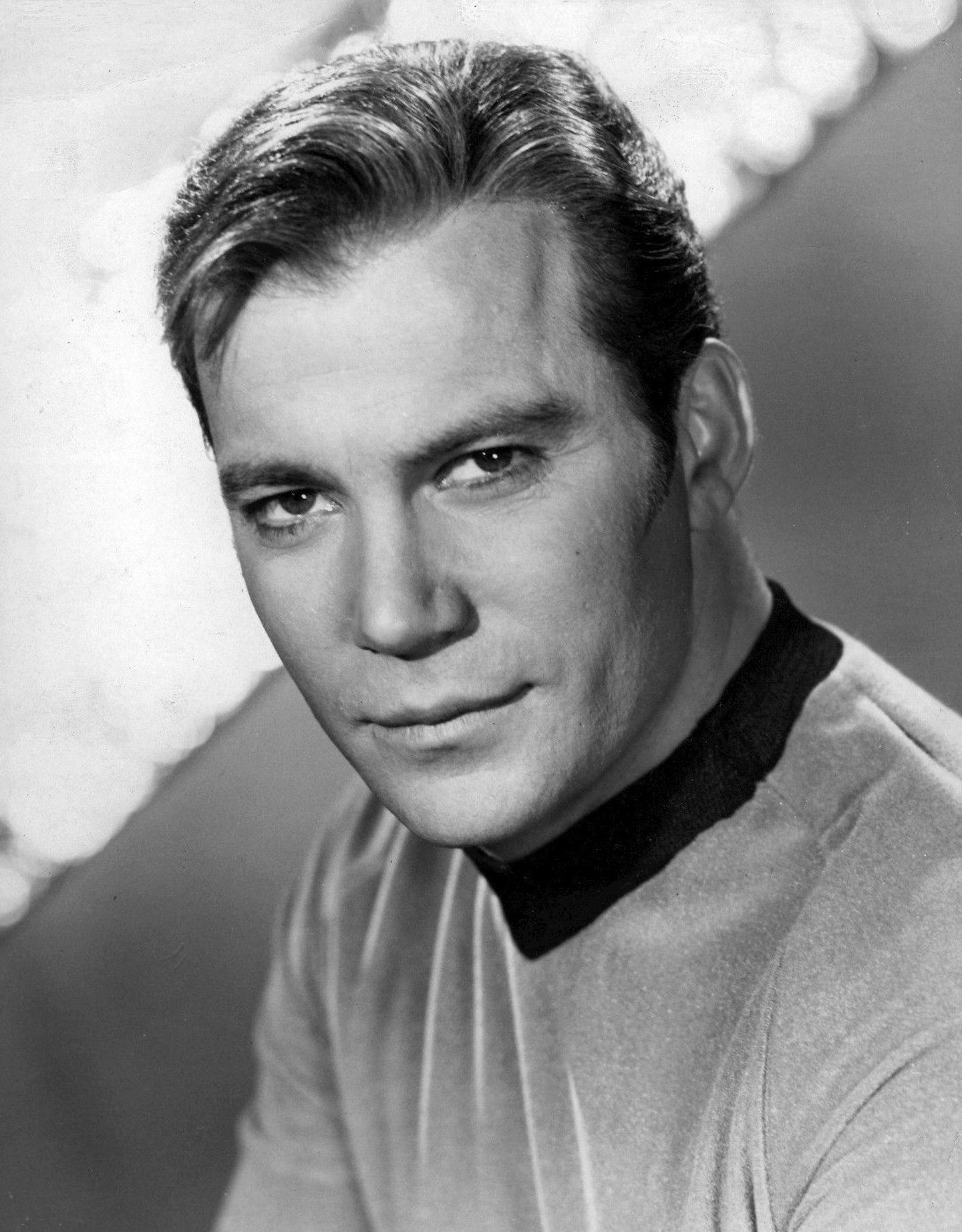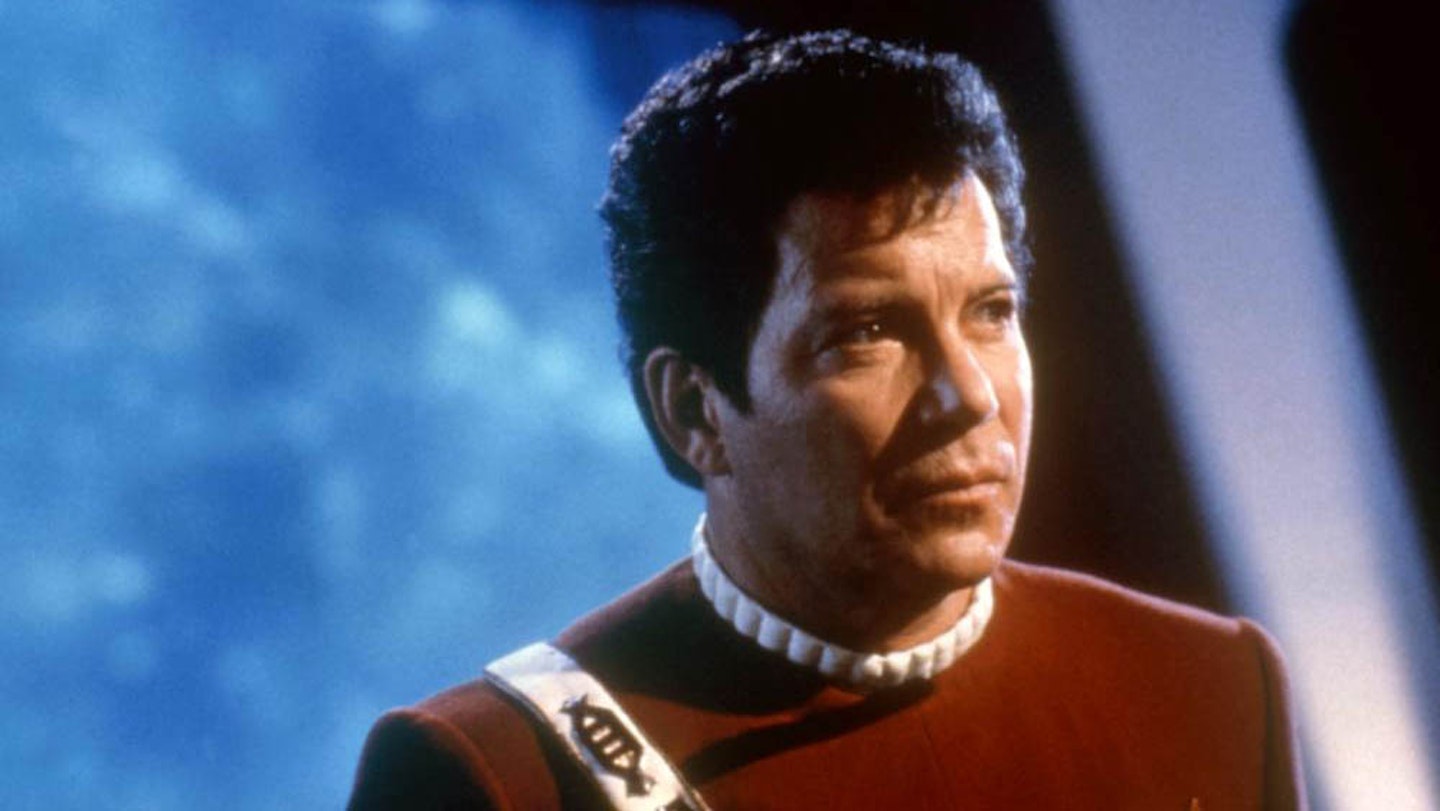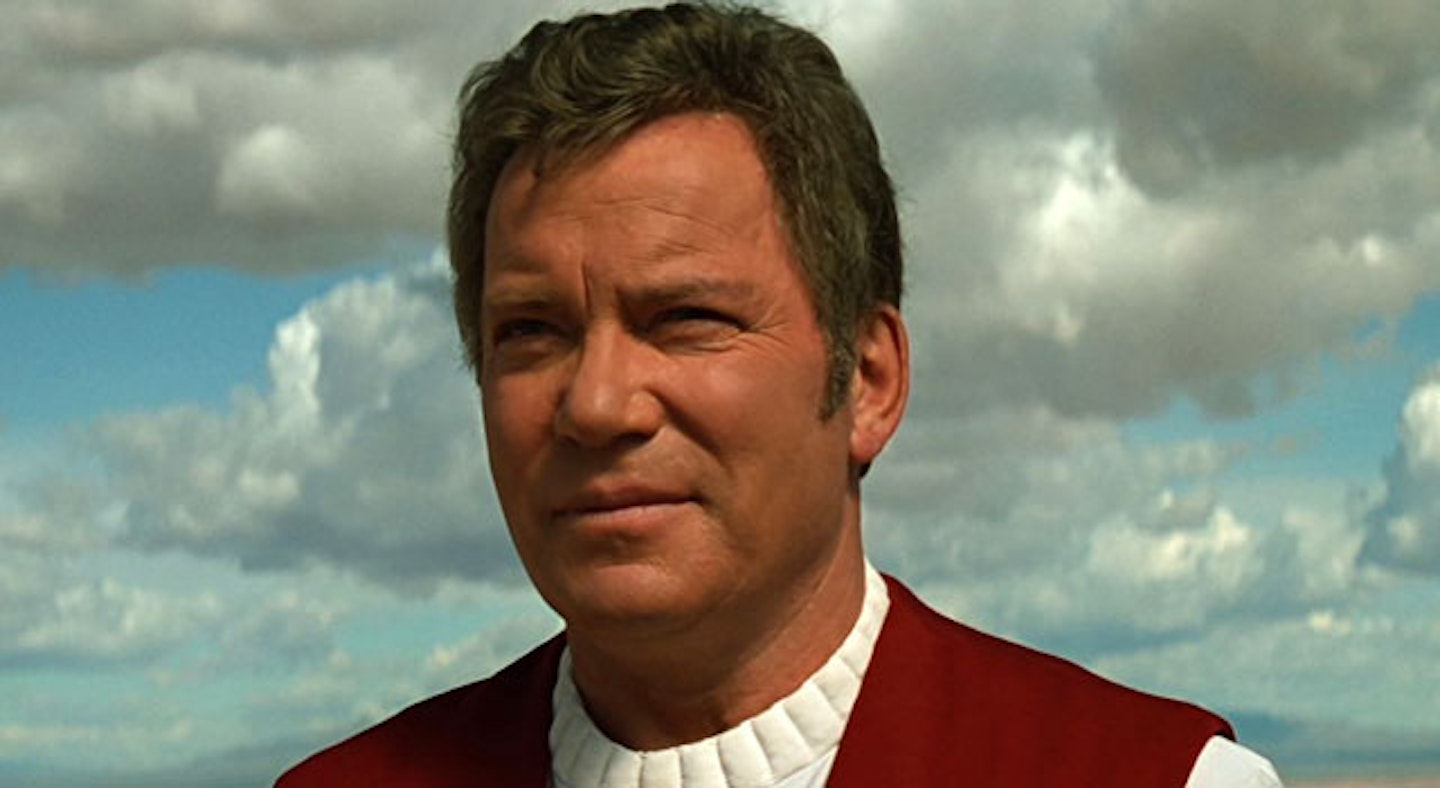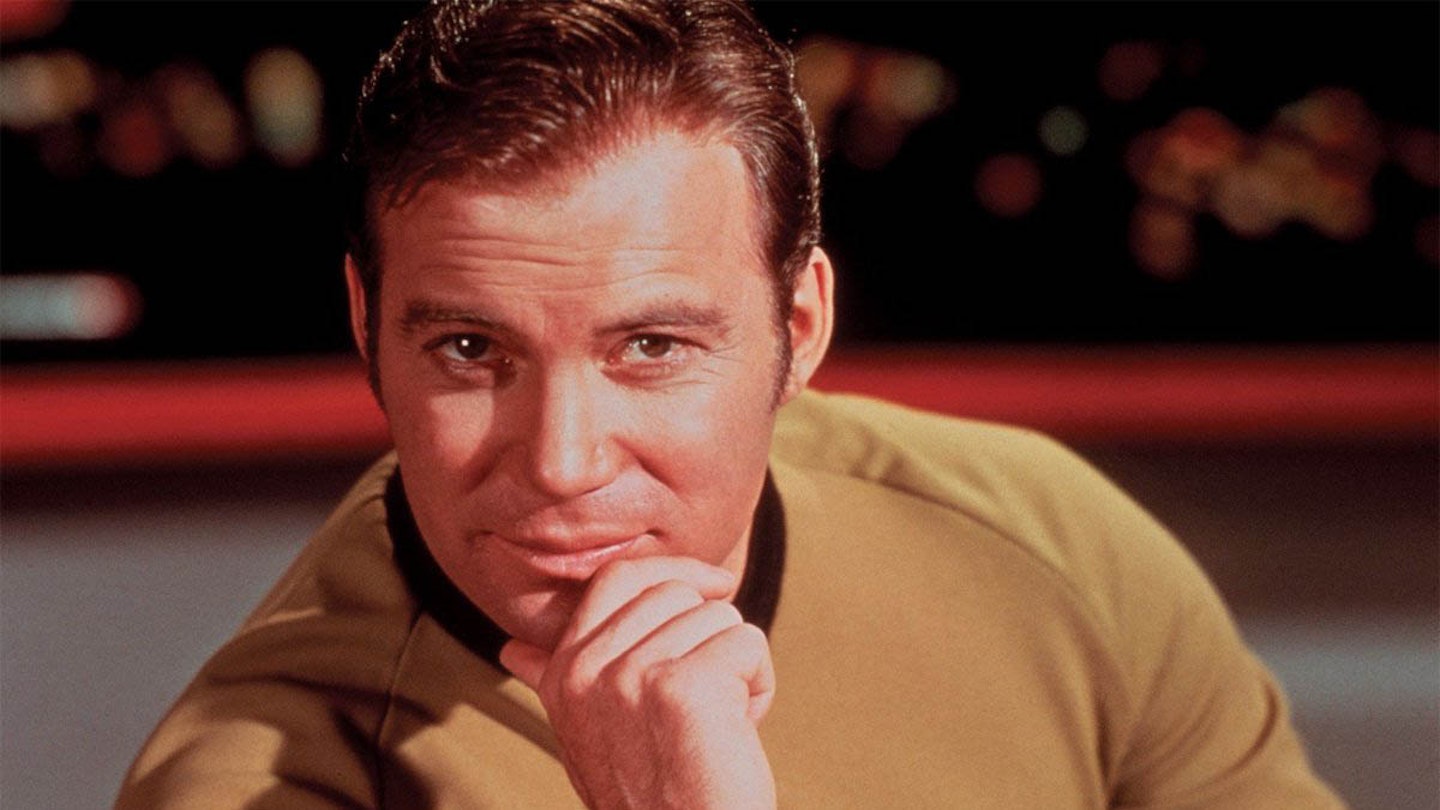Star Trek celebrates its 50th anniversary this year. To mark the occasion, the latest issue of Empire comes with a special 60-page Star Trek supplement, featuring – among other exclusive interviews, features, and essays – this interview with Kirk himself, William Shatner. You can buy the latest issue of Empire right here{

Fifty years ago the world was first introduced to the crew of the Starship Enterprise, their five-year mission, and the various forms of new life (both friend and foe) they met on their celestial travels. And over that time William Shatner, the star and captain (no matter what else he did in film, television or music) has been, and will forever be, best known to millions as James Tiberius Kirk. A privileged position? He certainly thinks so, as he happily told Empire when we spoke to him about the franchise reaching its half-century.
Does it feel like 50 years since you first sat in the Captain’s chair?
I’ve been in a multimedia extravaganza for 50 years and it’s gone by so quickly that it’s unimaginable. And it’s also a major part of my life that has gone by. So all told, it’s a mixed bag. Fifty years of adventure and excitement, but that’s almost the span of a man’s life. That last part’s depressing.
How did Gene Roddenberry pitch the role to you?
Horatio Hornblower in space. Gene took a lot of ideas from that series, but mainly the five-year mission and a little ship with its doughty group of explorers. I wasn’t a part of the first Star Trek pilot. An actor by the name of Jeffrey Hunter was part of it. NBC decided not to buy it. But they were intrigued enough by the idea that they tried again. So Gene asked me to come aboard.
I’ve been in a multimedia extravaganza for 50 years and it’s gone by so quickly that it’s unimaginable.
And what did you make of Kirk?
Kirk is the essence of a hero. I breed Doberman Pinschers and I breed horses, American Saddle Bred, and they both have a look, which is sometimes referred to as “the look of eagles”. Heroes, classical heroes have the look of eagles, too. They’re looking beyond the immediate problem and into the future. That was Kirk.
Did you wholeheartedly embrace the Star Trek concept or did all the talk of phasers and dilithium crystals feel silly?
It didn’t feel silly. Many of those early scripts were very well-written. There was a genuine character. I tried to do as much as possible with all this wonderful material. I learned some of those silly lines that obviously had no meaning other than tech babble, but I learned them seriously. I had done an entire film in Esperanto (1966’s Incubus), so this was easy.

Looking back, what do you think worked and didn’t work about the show?
What worked best was the story and our characters’ position in the story. What didn’t work were many of the effects. As cheap as you think it looked, it was worse. I’d pull down the jersey and it would rip, the sets shook and the lights would wink on and off. It was very, very primitive by our standards now. But then, all that really mattered to me were the words, because a film story is done in close-up. And everything else is extraneous. I knew that the words would carry. They were wonderful.
The fight between Kirk and the Gorn in particular has become iconic, though perhaps not for the reasons originally intended.
Well, there was this little guy inside this leathery suit. But kids come up even today and say, “Oh, we love it when you fight the Gorn.” When you think of audiences in the early 1900s with a guy twirling his moustache and the hero standing with his fists on his hips, we laugh at it now, but that audience took it at face value. And so did the audience that first watched Star Trek.
The show tackled some serious social issues, from racism to sexism to American nationalism. Were you very conscious of that at the time?
Very much so. We were very much aware that the story was shrouded in science-fiction but had great meaning for the present day.
And you had the first scripted interracial kiss on US television with Nichelle Nichols’ Uhura. Was that a big deal when you shot it?
It was. People were talking about it, that maybe we shouldn’t do it. And we’ll cut around it. It made the network very nervous. If I remember correctly, certain stations didn’t even air that episode.
Is it fair to say that you were quite uncomfortable with Star Trek’s rabid fandom early on?
Well, if you get bitten by a rabid fan… Yes, that proximity, which I’d never had before, makes you a little anxious. And then the other thing was at those conventions, you’d go out front and not have any prepared material. And there are 15,000 people waiting for you to be amusing and you don’t know what the next word is. Imagine that one.
What was the reaction on set when you heard that the series had been cancelled?
It was devastating. It was all very comfortable by that point. This place that I come to every morning, leave in the evening and a cheque comes every week. And now you’re taking it away from me? How is that possible? My five-year mission was to put my children through college!
How did you first find out they were thinking of bringing you back for a big-screen version?
It went through several manifestations. You’d hear a rumour it was going to be a film. No, it’s not going to be a film, it’s going to be a special. No, it’s going to be a series. You’re in it, you’re out of it. I do remember being out of town on something and Roddenberry calling me and saying, “We’re going to do a movie and we’re going to kill Kirk!” And I said, “Why kill Kirk? Why don’t you kill Spock?” And he thought that was funny. Then, ultimately, we did.
My five-year mission was to put my children through college!
When the movie wrapped, did it feel like the franchise had been revived?
After every one, the management at Paramount thought that was the last movie. They burned sets and got rid of the wardrobe and everybody went their own way for another year or two. So as far as I was concerned, it was over after each film.
After Leonard Nimoy directed III and IV, you took over for Star Trek V: The Final Frontier. Was that a positive experience?
I loved it! Directing’s great. It is one of the great human endeavours. My biggest failure was I had read some books by Eric Van Lustbader, who had written some wonderful novels about an American in Japan and how out of place he felt. I thought, “God, that’d be perfect for a Spock movie.” I went to see him and we walked the streets of New York pondering the plot of Star Trek. He was a fan. I thought, “God, I’ve got a bestselling author ready to do a Star Trek.” And then they couldn’t agree on the novel rights. So I lost him and my movie was going downhill before I even started it.
Does it bother you that The Final Frontier isn’t well regarded?
Well, that’s the popular view. It made as much or almost as much as anybody else’s, though.

Once they’d killed Kirk off in Star Trek: Generations, how did you feel?
You know, I had written a scenario for a book that brought Kirk back. And after I did the death scene, I went to the producer. I said, “I’ve got a book called The Return, in which I bring Kirk back. What do you think of that?” He said no.
Were you disappointed you weren’t invited to bring Kirk back in J.J. Abrams’ Star Trek?
Well, what’s he going to do? I thought the two Spock appearances were gratuitous. J.J. wanted to pay homage to Spock I guess, but he didn’t offer anything to the plot. So I recognise that an older Kirk… how’s he going to explain that? I told Leonard, “You know that you’re old when they go back in time and you’re still old.”
Looking back, what would you say is your fondest Star Trek memory?
You know, I really cared a lot about the actors. Most of the actors. Leonard, DeForest and I were really pals. That camaraderie and just sitting on the set, smoking a cigarette, drinking a cup of coffee, and getting ready to do the scene. I had a grand time shooting it. I’ve learned in my latter life to live in the moment as much as possible. And I didn’t know that when I was a kid. To enjoy the journey. It’s a cliché, but it’s absolutely valid. You can’t do anything about the past. And you don’t know what the future is, so right now it’s just this interview. I’m enjoying the process.
This article first appeared in the Star Trek supplement of Empire Magazine, issue 326. Buy the issue of Empire with the 60-page Star Trek supplement right here{
